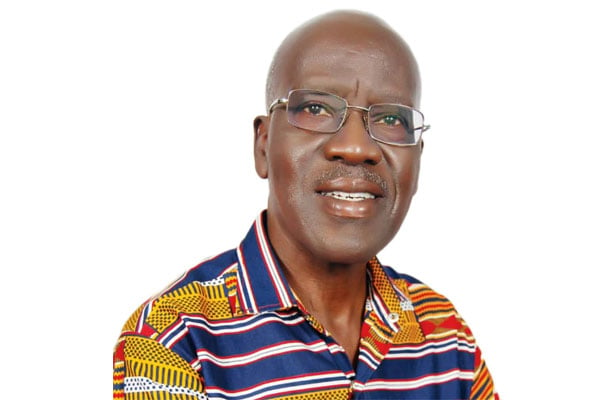To Makerere hilltop in pursuit of a dream

Prof Timothy Wangusa
What you need to know:
- Here we were, the 1964 cohorts, in a brand new nation and a brand new university
Uganda was only a two-year-old baby in 1964, and already becoming an expert at naively boasting of being ‘independent’, when my year-mates and ’yours truly’ here first set foot on proverbial Makerere Hill to further our high school excitement of learning. And, ah, being that ‘young, healthy, strong, free, and determined to become the very best that we could be – that was very heaven!’
Ever since its commencement in 1922, Makerere was at long last, starting in 1963, being headed by an African, and a Ugandan at that: the well-read and well-groomed Yusuf Lule of permanent two-piece-suit sartorial elegance. In 1963, Makerere has ceased being an overseas college of the University of London, upon the creation of the University of East Africa, with three constituent university colleges (in Kampala, Nairobi, and Dar-es-Salaam), of which it became the first among equals.
And so, here we were, the 1964 cohorts, in a brand new nation and a brand new university! And, my, my – many of the academic departments were headed by, or had on its staff, a name which was something of a contemporary legend: professors Macadam in Medicine, Lucas in Education, Welter in Mathematics, Thomson in Physics, Ms Macpherson in English, Noel King and John Mbiti in Religious Studies, and – my highlights – Ali Mazrui and Yash Tandon in Political Science.
It was mandatory for every first year student in the Arts and the Social Sciences to register for three subjects: in my case, English, Religious Studies, and Political Science. And as my lucky star would have it, in Political Science, I sat (like a Plato at the feet of a Socrates) at the feet of Professor Mazrui (1933-2014) hailing from Mombasa; and Dr Yash Tandon (1939-2023+), born in Soroti, of Asian parentage but speaking Ateso as fluently as any Ejakait, so we were told.
‘You ain’t seen notin yet’ till Mazrui and Tandon caused you to meet a sterling sample of the greats of historical and world-wide political thought, on the exciting course entitled ‘Theoretical Origins of Contemporary Political Systems’. And so, we met ‘grandfather’ Aristotle (384-322 BC) via his Politics; Thomas Hobbes (1588-1679) via his Leviathan; John Locke (1632-1707) via his theories of ‘Property’ and ‘Effective Settlement’; John Stuart Mill (1806-1873) via his theory of ‘Utilitarianism’; and Karl Marx (1818-1883) via his epochal The Communist Manifesto and Das Kapital.
Once more, ‘you ain’t seen notin yet’ till you begin to see ‘men moving like trees’ in the amazing arena of crazy modern politics. With the Greeks and Aristotle originate well-articulated concepts of statehood, the city-state, and democracy. The idea of a ‘city-state’ particularly caught our fancy, the government of the city-state deriving its mandate from the assembly of all the citizens of the city – a far cry from present-day individual members of parliaments having to represent (or misrepresent) a whole populous constituency. And the novel idea of ‘democracy’, subsequently defined as ‘government of the people, by the people, for the people’ – is another far cry from present-day captive countries where, for instance, the military, having captured state power, endlessly rig themselves into parliament though fake elections, and still afford to parrot that ‘all power belongs to the people’!
But our intellectual high-point came with Thomas Hobbes and the idea of a ‘social contact’ between ‘the governed and the governor/government’. According to this theory, the individual hands over some of his personal and civic liberties to ‘the governor’ for the common good: and it is this governor that Hobbes calls ‘Leviathan’ – a huge fish-like sea monster. The book cover of Leviathan that I purchased at the time depicted this monster as having ugly scales all over its body – each scale having the face of an individual citizen! This signified that ‘the government’ is a communal necessity – but an impersonal and monstrous beast! And such was my induction into the Makerere dream of learning.
Prof Wangusa is a poet and novelist. [email protected]


